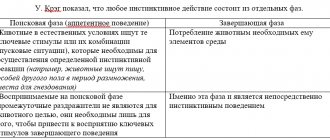The Karpman Triangle is a model of a toxic relationship that is wrong in every sense. This is a trap figure, a Bermuda Triangle, which is easy to get into, but extremely difficult to find a way out.
Here each participant has his own role. Months, years pass, and the person continues to play it. Not because he likes her, he just can’t help it. This is codependency.
From this article you will learn:
- The drama triangle and the main roles in it.
- Simple examples of a love triangle.
- Test for signs of codependent relationships.
- How to get out of the Karpman triangle?
- How to form a power triangle?
This model was proposed by psychiatrist Stephen Karpman in 1986. The triangle contains the following roles:
- A victim is a suffering person. She is always dissatisfied with everything, but does not even try to change her life.
- The rescuer is a lifesaver. The person who comes to the aid of the Victim supports, sympathizes, protects.
- The Persecutor is a person who terrorizes the Victim and considers himself stronger and higher in social status.
Remember the fairy tale about the Princess, who was kidnapped and locked in a tower by a formidable Dragon (or an evil witch - it doesn’t matter)
And there is always a valiant Knight who wants to save her. This is the simplest model of the Karpman triangle.
Only in the book this is an instructive story with a good ending, but in life everything is not so rosy.
Karpman triangle in psychology
An interesting feature of the Karpman Triangle is that this situation may not change for quite a long time, one way or another suiting each of the parties:
- The persecutor, representing a strong personality, puts pressure on others;
- The victim considers it quite normal to shift responsibility for his failures to others;
- The rescuer is confident that he is obliged to help everyone who finds themselves in difficult circumstances.
And although all the roles in the Karpman Triangle are strictly defined, they can change. Sometimes the Victim can become the Persecutor, the Rescuer can transform into the Victim, etc. However, such metamorphoses are rather a temporary phenomenon.
The Role of the Victim
An interesting fact is that in his Triangle, Karpman assigns the main role to the Victim. In his opinion, all 3 personalities do everything possible to not be responsible for the situations occurring in their lives.
The victim seeks to evoke sympathy from others and attract attention to himself. In addition, in some cases it can provoke the Pursuer and Rescuer
Having achieved her goal, she begins to influence them, wanting to receive some kind of compensation.
Later, the Victim herself can turn into one of the opposite characters. However, having entered into a new image, she will still try not to change her views and avoid responsibility for her actions.
An interesting fact is that in certain cases in the Karpman Triangle, all 3 types of characters can be Victims. You can leave the role of the Victim only by changing the emotional background. She needs to understand and feel that changes have occurred in her life.
In addition, the Victim must understand that she can change her life only when she herself is responsible for her actions.
The role of the pursuer
The persecutor is a person who does everything to dominate others. It is curious that, trying to influence the Victim, the Persecutor justifies his actions in every possible way.
If the Victim begins to resist his Persecutor, he tries to suppress the protest. If he succeeds, he receives satisfaction and asserts himself. As a result, oppression and manipulation of others become a basic need for the Persecutor.
An interesting fact is that the Persecutor finds justifications for all his actions that are reasonable from his point of view. If this cannot be done, the Persecutor’s beliefs may be destroyed.
At the same time, when the Victim begins to resist, this can serve as an additional incentive for the Persecutor to continue to put pressure on her.
Role of the Rescuer
The Rescuer is a very complex character in Karpman's Triangle. He has a tendency towards hostility, which he tries in every possible way to suppress.
Since for a number of reasons he cannot become a Persecutor, he has to look for other ways to realize his hidden needs. As a result, he finds his own purpose, which is to help the Victim.
At the same time, it cannot be said that he is trying his best to help her, because then he risks losing the opportunity for his self-realization.
This self-realization consists in the fact that the Rescuer, under the guise of helping the Victim, shows hostility towards the Persecutor, invisible to others. Therefore, he is not really interested in the Victim's exit from the Karpman Triangle.
Karpman triangle
“-1” stage of the triangle: VICTIM – CONTROLLER (PERSECUTOR) – SAVIOR
To call this stage of evolution basic would be incorrect, since people do not grow in it and do not even remain in one place. They are systematically degrading.
Let us remind you right away. One person is all three subpersonalities at once, he simply chooses one model of behavior more often, but he has everything that other subpersonalities have. By denying their manifestation in other people, the codependent denies himself.
VICTIM: emotions and thoughts
The main feelings that a person experiences when playing the role of a victim:
1. Resentment towards life. "Everything is bad. Life is evil. I can't change anything. Everyone insults me. I’m so good, but so unhappy.”
2. Enjoyment of suffering. The victim revels in his condition, feels like a martyr and therefore almost a saint. Internal message: “You’re offending me, but I’m actually very, very good. And I will show you all how good I am. Rate it again! This is where I’ll tell you what I think about you. This is where I’ll leave you all to the mercy of fate, you’ll have to wait.” In other words, the main claim to the world: I am underestimated, but I will prove it. Destructive, angry message. In order to ultimately humiliate the one who humiliates her, the Victim.
3. Wine. “I did it wrong. Now I need to make amends for my wrongdoing. I am bad". At the same time, there is a desire to rehabilitate yourself in someone’s eyes, but there is no way to draw conclusions. The main desire: to simply ease your worries.
4. Jealousy and envy. The source of these feelings is low self-esteem and an unconstructive attitude towards one’s capabilities. Other people's successes do not inspire, but make you feel the bitterness of defeat and irritation. In the worst case, there is a desire to harm the more successful. Taking away “what is rightfully due” means cases of blind jealousy.
5. Shame. It is curious that in addicts the sense of shame atrophies, but in codependents it becomes more acute. Moreover, a codependent person feels shame for his misdeeds. Basically, these are some completely insignificant little things that make him reflect and replay the situation again: what could I have done if...
The victim periodically falls into a state of depression, perceives the world inertly, and is not ready to change anything. There is a huge stagnation of energy in her, although outwardly she may seem active, businesslike, fussy, but all this is “fuss around the sofa.”
The victim, like any Soul that comes into the world, desires development, but a person in this state does not allow development, and the struggle with oneself deprives the person of power. The victim is constantly on edge and feels extremely tired.
"I'm tired!!!" - the cry of the Victim’s soul.
PERSECUTOR (CONTROLLER): emotions and thoughts
The controller is a pure sublimation of fear. He clings to the boundaries set by the DO and feels a lot of irritation that everything is not going according to his plan. Anger and impotent malice, suppressed aggression - these are the controller’s eternal companions.
The world for the controller is a place of evil and predictable, inevitable suffering. He is always looking for the “rear”, does not trust anyone, believes that he needs to take care of everything that happens. And it doesn’t even occur to him that he is unable to anticipate the situations that other people create. He can learn to react to some similar situations, and naively believes that he now has in his hands an instrument for controlling the world. That it can eliminate the causes of problems. But problems remain. And the only thing that can be done is to change the attitude towards these problems, and not to remove their source.
Anger and fear always live inside: the world is always unusual and provocative. The controller is unaware that any changes can cause improvements, even if they are painful. The controller is afraid of changes to the point of panic: because then his fragile little world with a bunch of rules will collapse.
He keeps track of everything. Checks everything! He takes care of everyone, even (and especially!) if he is not asked. He believes that his concern is for the good of everyone. He is sincerely surprised and annoyed that his care is not appreciated, and this becomes a source of conflicts and complaints.
In this case, the controller is the starting point from where energy is born. But it does not move in a circle, from one subpersonality to another. It simply appears, and for destructive reasons. For example: there is a problem - it needs to be fixed. (In Karpman's creative triangle
“+1”, note that energy is born from the desire to create and improve something, at least to observe what happens).
The Controller begins to put pressure on the Victim, who suffers, resists, gets irritated, and complains to the Savior. He begins to console the unfortunate woman, and the energy closes. No action occurs, energy flows into nowhere.
“I’m so tired of dragging you all along!!!” — the main complaint of the Controller.
SAVIOR: emotions and thoughts
The Savior plays the role of Mother Teresa. He protects the victim and takes pity on the Controller. And he acts as such a buffer, but in reality he is a coward. He is driven by pity and resentment (oh, you poor things, but I’m cooler, well, if that’s the case, I’ll help you! Pity! Oh, don’t appreciate it! Resentment!)
Guilt is the key emotion. Guilty for not helping (obliged, because by default I am obliged, I decided so long ago for myself for a variety of reasons), anger and irritation at the Controller (so-and-so, the offender!).
Resentment (you don’t appreciate, don’t respect, don’t notice my efforts, don’t value me at all).
The Savior takes pity on the Victim because she is weak and defenseless, and on the Controller because he has shouldered the load and is dragging it. In the end, everyone is sorry, everyone needs help, and the EGO of the Savior blooms like a lush laurel: “Where will you go without me? I reconcile you all here, I help everyone.” This is, perhaps, one of the few positive emotions in the entire “-1” Karpman triangle, from which, however, nothing useful grows. The same tension, stagnation of energy remains inside. They are not wasted anywhere.
The Savior encourages the destructiveness of the Victim, stimulates the Controller to work hard, encouraging him to spend even more energy. As a result, he takes all the power for himself. In fact, he is the most satisfied member of the trio. He at least gets the pleasure that he is not the worst in this pile of events.
“I feel sorry for you all!!!” - the main thought of the Savior.
Definition of Karpman triangle
Karpman's psychodramatic triangle in psychology is a social and psychological model of communication in society, the reflection of which is identified with transactional analysis.
Role Map
In 1986, Stephen Karpman proposed that relationships between people are structured by three personalities, each of which plays a special role:
- Victim. A weak personality who prefers to blame others for all his misfortunes. At the same time, the Victim refuses to make attempts to change the situation.
- Rescuer. A person who at any moment is able to go to the aid of the Victim: will always protect, comfort and listen.
- Pursuer. A strong man who is prone to tyranny. Prefers to terrorize the Victim.
As can be seen from the distribution of roles, Cartman's triangle reveals the ego state of each person. At the same time, the participants in the game can constantly change places, demonstrating new facets of their own personality.
The roles in the Karpman triangle simplistically reflect real life and “unhealthy” relationships between people.
Additional Information. Every person at one time or another in life can see himself as a grateful Victim, a generous Rescuer, or a cruel and wicked Persecutor.
The essence of the triangle of fate
When trying on one of these roles, the process of ignoring reality is activated. A person begins to believe in what he is “playing.” During crisis situations, a person can retrain for another role: the Victim can become a rescuer, and the persecutor can become a defenseless Victim.
Important! A large number of people can participate in the game. But there will always be 3 roles in this “play”
Example - a wife, husband and mistress can be the “vertices” of the triangle of fate.
This means that unhealthy gambling can last forever, and codependent relationships can ruin lives over a long period of time.
How can you recognize the Victim, Rescuer and Persecutor in a dialogue based on your feelings and observations?
Your feelings and observations will help you determine who is currently in front of you - the Persecutor, the Rescuer or the Victim.
– When you listen to or watch the Rescuer, you feel a sense of pride for him or bewilderment at how far this person goes in his desire to help others.
– When you listen to the Victim or watch her, you feel acute mental discomfort - you experience pain FOR her, you find yourself looking for a way to help, and you actively sympathize.
– When you listen to the Persecutor or watch him, you are literally overwhelmed with barely concealed indignation, either towards those he is talking about, or towards the Aggressor himself.
Relationship scenarios: family of an alcoholic
And now about the mechanism in action. There are 3 roles in the Karpman triangle - Victim, Persecutor, Rescuer. I will explain this model using the example of a relationship with a person suffering from alcoholism.
As a rule, at first he does not drink too much, and his wife does not think this is critical. Over time, as the relationship becomes more insipid, the chemistry of falling in love goes away, the man again plunges into his fear of not being whole, and needs to reproduce the scenario of the relationship with an anxious mother in order to feel whole again.
He begins to drink more intensely. A woman, as a rule, who also had a similar family history, responds with control, worry about her husband, and an increased need to worry about him. All this helps her feel whole, to reproduce the model of love that she had in her relationship with her anxious mother.
Practice shows that it is useless to argue about “who started first” here - both partners had an initial tendency towards codependent relationships, otherwise they would not have attracted each other on a subconscious level by the similarity of their internal traumas. Such relationship scenarios generally arise only when both mutually provoke each other.
But let's return to the Karpman triangle. A man who begins to drink more and more intensively takes the position of a Victim (of fate, social injustice, loans, mortgages, hard work, etc.). The woman, who at first pities and understands him, becomes a Savior - she tries to ease his hardships, create comfort, and support him in his experiences.
After a while, it turns out that all the measures to save her do not help, and her husband begins to drink completely disgracefully. This begins to threaten the well-being of the family and children, create a lot of serious difficulties and deprive the woman herself of attention and care.
And then the woman turns into a Persecutor. Her patience has run out; instead of exhortations and sympathy, indignation, scandals, and insults are used. A man remains a Victim for some time, only from a grateful victim, as he was at an early stage, he becomes an angry victim.
As a result, a man cannot withstand pressure and scandals, lack of sympathy and understanding, and at some point goes into the stage of uncontrollable drunkenness (it doesn’t matter whether it’s one episode or a binge for several days/weeks). So he becomes the Persecutor, and the wife automatically falls into the position of the Victim
For some time, he “dictates terms” to the whole family with his aggressive behavior, they are afraid of him, but, having splashed out the accumulated aggression, he, consciously or not, feels that he cannot achieve support and care this way. And in order to restore peace and the previous state of affairs, he begins to feel sorry for the woman.
So he becomes a Rescuer. And the woman turns from an angry Victim into a grateful Victim
For some time, an illusion of understanding and peace arises in the family; against this background, the man often promises not to drink, tries to appreciate the woman’s efforts, and recognizes her importance in his life. A woman has hope
She again begins to give him support, save, understand and sympathize, and the situation again enters a new circle: she becomes the Rescuer, and he becomes the Victim. The Karpman triangle begins another cycle.
Triangle of power - life according to the thumb
Everyday situation: role-playing games Victim - Rescuer - Persecutor with a constant change of roles. The main characters - the spouses - do not change.
Winter. A tired and hungry husband comes home from work and sees that his wife, instead of meeting him and offering him a hot dinner, is talking on the phone with her friend about how well she rested. We are not talking about any dinner, there is a “mouse” in the refrigerator. In all likelihood, he will have to go to the store or cafe around the corner without undressing. The only breadwinner in the family begins to boil, accepting the role of the Persecutor. The wife, having interrupted the conversation with her friend, is silent, cowering in the chair - she feels like a Victim.
After undressing and thinking for a minute, the husband orders pizza for delivery. The wife forgets about “sacrifice” and notices that he lives beyond his means, and she has been wearing old boots for two years now. From a Victim she turns into a Persecutor. The hungry husband plugs his ears with cotton pads prepared in advance in a vase and, after waiting for the courier, slowly and happily eats pizza in the kitchen. The wife boils over, splashing out into the world the emotions that have accumulated during the day. She accuses her husband of all mortals, complains about the earthly paradise irretrievably lost because of him. Dinner is over, the dishes are washed, the wife expressed everything she thinks and became quiet, hanging her head and wandering into the room. She again slipped into her usual role of the Victim. The husband satisfied his hunger and became more cheerful, took the earrings out of his ears, hugged and reassured his wife, bringing her out of the psychological clinch. He, as most often happens, again appears as a Savior for her. The fragile world has been restored again, perhaps you can plan a vacation or shopping for the weekend.
This is how their evening passes, becoming one of dozens of others who are like him like two peas in a pod. The salary of the breadwinner did not change during the evening, and the wife never learned to cook tolerably. All participants in the game remained to their own. Having swapped roles several times in an hour, mortally tired of each other, but having each experienced their own emotions, the spouses fall asleep peacefully, having forgiven each other for mutual insults. Tomorrow everything will return to normal and there will definitely be a new game and a new scandal, perhaps for a different reason.
This is how people live their days, changing roles and playing with each other, hoping to receive their modest prize in the form of a predictable set of emotions they need like air. Triangles of power are continuously fed from outside and grow. So the wife in our example will go to cry to her friend and complain to her mother, and the husband will not fail to stay late from work and invite his colleagues to a cafe, where during a casual conversation he will appear before them in the role of the Victim. Then new Rescuers will join the game, rushing to help in any way they can. At the same time, each of them will compare the problems of their spouses with their own situation and thank God that, as it turns out, everything is not so bad for them.
Victim behavior in relationships
The victim does not necessarily suffer for real. The main thing for her is to feel unhappy. This position is comfortable for her
Receiving confirmation of his status, the victim enjoys the attention, pity, and sympathy of others. With her behavior she provokes the aggressor, causing anger, threats, neglect
The behavior of the aggressor makes her feel shame, resentment, jealousy, envy.
A cocktail of sensations makes you feel alive. Without nourishment from the aggressor, she feels exhausted, unnecessary, and afraid of life. The victim can be a woman, a man, a child. Signs of victim behavior:
- passivity, immaturity, desire to shift responsibility to a partner;
- deliberate provocations, complaints, constant emphasizing one’s unenviable position;
- negative reaction to attempts to help, enjoyment of sympathy.
The victim is filled with self-pity and sincerely considers himself unhappy. But as soon as the opportunity to leave the relationship arises, she ignores it. Help in the form of sympathy is readily accepted, but more decisive actions of the savior are perceived as an encroachment on their relationship and actively resist
How to get out of the Karpman Triangle
Any person is susceptible to negative life situations and can even often create them himself.
Leaving the Karpman Triangle is sometimes not as easy as it might seem at first glance.
The more we are influenced by society, the more we find ourselves in its intrigues and intricacies. If you begin to experience psychological discomfort, then you should immediately leave the Karpman Triangle.
Initially, you need to objectively consider the current situation and assume that it may represent a Karpman Triangle. Next, you should carefully analyze everything and determine who you are - Victim, Persecutor or Rescuer.
During self-analysis, an individual can come to very unpleasant conclusions. However, to find a way out of the situation, you need to objectively consider your situation.
Tips for the Victim
As mentioned earlier, in the Karpman Triangle the Victim is considered the most complex figure. How then to get out of the role of the Victim? Let's look at some recommendations that will help you deal with the problem:
- you need to do everything in your power to improve your own life;
- you should stop blaming others for your failures;
- realize that you will have to pay for any service provided to you one way or another;
- stop constantly making excuses, because you have the right to do as you see fit;
- If a Rescuer appears in your life, try to get the maximum benefit from communicating with him. Do not try to be the initiator of his clashes with the Persecutor.
Tips for the Rescuer
To get out of the Karpman Triangle, the following tips will help the Rescuer:
- do not interfere in other people's relationships until you are asked for help;
- do not consider others stupider than yourself;
- Before you promise anything, you should think about whether you will be able to keep your promises;
- if you are going to help someone, you should not expect gratitude from anyone;
- if you decide to provide help for personal gain, you should not hide it;
- try to find a path for self-realization that does not imply interference in other people’s problems;
- if you sincerely want to help others, then do it when it is really necessary.
Tips for the Stalker
If the Persecutor wants to leave the Karpman Triangle, he should conduct an objective self-analysis and listen to the following recommendations:
- Before showing hostility towards someone, you need to be sure that it is not unfounded, but is only the result of something wrong;
- you should accept the fact that you, like all people, make mistakes;
- initially look for the root of your problems in your actions, and not in the people around you;
- realize that if you do not listen to the opinions of others, they, in turn, will also not take into account your opinion;
- find other opportunities for self-realization;
- strive to achieve your goal by motivating people, not by putting pressure on them.
Who helps you leave the “-1” triangle?
These are people from the “+1” triangle, where the Victim becomes a Player, the Savior becomes a Provocateur (Motivator), and the Controller becomes a Philosopher.
And this is really very difficult: to move into a new type of relationship on your own, and why is understandable: the environment will cling to your arms and legs, trying to return you to the old circle (reproaching you for the past, demanding familiar things in the old fashioned way, mocking attempts to change, and so on Further). This is a normal reaction of people and therefore it is important and should be ignored, but it is difficult to do it alone. We need help from more mature individuals.
We need a new behavior strategy. Let's see what subpersonalities live in the “+1” triangle.
How does the Philosopher, former Controller, act? He observes situations from the outside. If there is no visible result, then there is always experience. And this leaves the Philosopher in a calm, relaxed state, even if not everything happens as planned.
Even if everyone around him claims that what the Philosopher did was wrong, he does not get upset and believes: “I did it this way, so that’s what I needed.”
The philosopher mainly proves nothing to anyone. But there is a small nuance here: it depends on the degree of moral maturity of the person. The more a person proves and argues for the sake of arguing, the less maturity he has, and the closer he is to the “-1” triangle. The Philosopher's background reaction: the joy of learning about the world, curiosity, uniform comfort in assessing events.
The Hero's subpersonality implies studying the world through the example of his reactions. First of all, he evaluates his actions from the point of view of usefulness for himself, and only then their interest to others. Background reaction to the world: excitement, interest, inspiration, joy from success, boredom if nothing happens for a long time, but constructive, motivating boredom. Sadness if you lose, but not a feeling of guilt, thanks to which the Hero quickly slides back into the position of the Victim.
In the pair of Hero and Philosopher, there is a uniform exchange of energy. Let's give an example. If the Controller and the Victim try to put pressure on each other and force them to follow their rules, then the Hero commits actions, and the Philosopher observes and accepts the results as a fact.
For example, an alcoholic gets drunk and skips work
. The Philosopher silently watches as the Hero gets out of the situation and loses his job. This is his job and his area of responsibility. The controller would start teaching and giving advice, but the Philosopher is silent. The victim would blame himself, the Hero draws conclusions and makes a decision.
The internal behavior of the Hero echoes the behavior of the internal Philosopher. “If I was fired from my job, I was already fired. Now we need to take this calmly. And... do something!”
The third subpersonality is the Motivator, the former Savior, who now does not justify the Hero’s weaknesses and does not feel sorry for the Philosopher (there is nothing to feel sorry for him, he does not strain and does not suffer). The motivator is happy for the hero and encourages him, painting him rosy pictures of the future that awaits him if the Hero tries. The provocateur examines the behavior of everyone around him, doing some actions and observing what happens.
The internal subpersonality of the Provocateur manifests itself both when the internal Hero is turned on (the person himself performs actions and evaluates them himself, acts as both a Hero and a Provocateur), and when the Philosopher is activated (the person himself thinks “what would it be if” and reacts himself, but within himself, that is, he plays two roles at once: Philosopher and Hero).
Let us recall that each subpersonality has a feminine and masculine nature, and it does not matter who plays the role, a man or a woman. Thus, the subpersonality of the Hero manifests itself as a man, when the Hero decides to take actions and new events, and as a woman, when the Hero thinks whether he can accept new circumstances and be happy at the same time.
A philosopher acts like a man when he analyzes mistakes and draws conclusions, and like a woman when he does not feel anger or irritation at what is happening.
The provocateur acts like a man when he creates situations, and like a woman when he responds with emotions and feelings that are not typical for the “-1” triangle. Forces yourself to feel something new and not aggressively accept it within yourself.
Now let’s see what will happen if the subpersonalities of the “+1” triangle begin to interact with the subpersonalities of the “-1” triangle?
As a rule, for the “-1” triangle this experience is painful.
Let's say the Victim goes to the Savior (who has become the Provocateur), expecting another portion of consolation and support, but is met with irony and sarcasm. It hurts! And it's a shame. And only if the victim has sufficient potential, is she able to reach out to the teacher-Provocateur and follow his reasonable promptings. More often, the Victim does not plan to change anything and, not finding sympathy, gets angry with the Provocateur.
You won't be able to hear the controller either. The Victim is used to living according to the instructions of others, but the Philosopher will not do anything, he will simply leave the Victim alone. In need of a kick and advice, the Victim either begins to delve deeper into his grief and fall even deeper, that is, remains at the same level, or the spirit of contradiction awakens in her, and she automatically begins to provoke herself (this is ideal when a person from the triangle “ +1" manages to stir up the person in the triangle "-1" and encourage them to change. Unfortunately, this happens extremely rarely.
Example:
the alcoholic husband begins to be insolent to his wife, intuitively trying to achieve a reaction of anger and teaching in order to get at least some portion of the usual energy. The Philosopher wife does not pay attention, but the Provocateur wife immediately makes fun of her husband’s behavior or behaves in an unusual way, for example, she genuinely has fun looking at such behavior. The husband, not getting what he wanted, loses the motivation to pretend to be a sufferer and awakens anger (suppressed aggression is transformed into action), a hidden reserve that forces him to change behavior.
From an actor-Victim, he becomes a Hero, that is, he does what he really wanted, for example, at least goes to sleep, instead of doing his usual duties. That is, he makes, albeit incorrectly, an independent choice.
Further, the scenario can develop along a constructive or destructive path, because each step is a choice: to act as in the “-1” triangle or as in the “+1” triangle.
This choice is always made consciously. But to do this, a person must imagine exactly what behavioral traits keep him in the old behavior pattern.
If, after the awakening of the alcoholic Hero, the wife plays the role of the Controller (“I slept through work again!”), then everything will return to normal. And if he turns on the Philosopher, that is, does not react in any way, the alcoholic will be forced to solve the problem himself. And here again there is a choice: he may decide (Hero), or he may not decide (Victim). And again the wife’s reaction is in response: irritation (Controller), acceptance (Philosopher). And so on. And if at least one of the two maintains the bar, sooner or later the second will have no choice: either he will begin to change, or the one who has grown out of a destructive relationship will realize that it is time to simply leave the unnecessary alliance.
Let's give another example
, and describe reactions to the behavior of an alcoholic from the perspective of subpersonalities of different triangles.
The husband drank (the role of the Victim). Feels helpless, useless, offended and angry.
Wife-Controller: creates a scandal, attracts mother-in-law or mother-in-law to help, the next morning she tries to clean the room and wash the Victim’s clothes (in this case she becomes the Savior). Listens to her husband’s complaints in the morning and his apologies (takes the position of the Victim, the husband takes the position of the Savior).
Wife-Philosopher. Look at your husband’s behavior and he doesn’t do anything. Decides next time not to justify her husband to the neighbors (Hero’s decision). In the morning, in response to her husband’s complaints, she says: “Do you like to drink? Love and headaches” (accepts the role of Provocateur).
How to move from Victim to Hero?
So, to think like a Hero, tell yourself the following phrases and strive to do this every time another attack of irritation and resistance to the situation brews inside you.
1. Why am I complaining about these people. How can I fix the situation MYSELF?
2. They are not obligated to solve my problems.
3. What happens to me is my choice. If they behave this way, then I allow it.
4. I don't have to make excuses. It is my choice. But the responsibility is also mine. I am ready that the reaction of others will not be pleasant for me. But I do this myself, and they have the right to react this way.
5. If I am given advice, I should use it, and not blame others and complain about them.
6. I need to find a way to decorate my life without the help of others. I must be able to do what I like and not expect praise.
How to move from Rescuer to Provocateur
1. No one needs my advice and my “truth” until they ask. I'll keep my opinion to myself.
2. I am not God and I don’t know how others should live. They can handle it themselves.
3. I will not promise something that I still cannot deliver.
4. I don't expect gratitude. If I want to help, I will help. If I help so that they will praise me, I will not do it, they may not praise me, it will be unpleasant for me that I did not do it from the heart, but for the “carrot”.
5. No one owes me or should thank me for my actions. This is their right, not their obligation. Consequently, I am not obliged to do everything that I did before for them, this is my RIGHT, not an obligation.
6. I must love myself and increase my self-esteem. By currying favor and doing “good”, I do not become a better person. On the contrary, it seems that I am respected even less. To be loved just like that, I have to love myself just like that, and not for completed tasks.
7. If I really want to help someone, I stop and think: will this really help? Or will the person take advantage of my help again and act as usual? Then how can I help? I cause harm and do not allow him to cope with himself.
Exiting the triangle: what participants should do
It is possible to get out of the Karpman triangle. But to do this, you need to independently come to the decision to change, sincerely want it and work hard.
Escaping the victim role includes:
- Awareness of your responsibility. The victim is afraid of life's challenges. The need to make decisions on her own leaves her in a stupor. Understanding yourself as an adult who will have to be responsible for your words and actions is the first step towards independence.
- Quitting addiction. You cannot expect that the people around you will always take into account your wishes and fulfill your promises. Circumstances may change, you need to learn to get out of the situation without counting on a patron.
- Stopping complaints. It's easy to regret missed opportunities. But by constantly looking back, a person is deprived of the opportunity to develop.
Exit from the role of aggressor-controller:
Accepting the independence of other people. The controller strives to enslave the will of other people because he does not believe in their independence and ability to cope with life
It is important for an aggressor to learn to perceive others as free, strong individuals. Finding a compromise. The desire to always get your way prevents your partner from opening up
The aggressor does not know how to give, to be emotionally open, and does not receive emotional affection. To get it, you need to learn to give in. Alternative means of self-affirmation. It is not difficult to be better against the background of a weaker one. But the higher the controller rises, the more dependent and weaker its partner becomes. It is impossible to build a normal relationship with such a partner, therefore submission cannot be demanded from the victim partner. On the contrary, his independence should be encouraged.
Exit from the role of savior:
Control your desire to interfere in someone else's life. Often the need to solve other people's problems appears against the backdrop of a lack of personal life. Therefore, you should spend more time on yourself without wasting energy on others. Do not help unless there is a direct request for help. There is nothing wrong with trying to help, but only if you need help. Before taking responsibility for another's relationship, the rescuer must be convinced that his intervention is necessary. Work on self-esteem
The feeling of self-importance due to the perception of other people as stupid and unable to cope with themselves increases the self-esteem of the savior. But self-perception should not be based on other people's problems.
Having realized himself as part of a triangle, a person must understand whether he is really ready to develop, to reach a new level of relationships. The Karpman triangle can be turned into a healthier format, but this requires the participation and effort of all participants in the codependent union.
Signs of a codependent relationship. Simple test
Ask yourself a few questions and give an honest yes or no answer.
- Have you ever had to do something for a person if he didn't ask for help? Just because you had experience in a similar situation?
- Do you often hide your feelings (especially negative ones - pain, aggression, despair, resentment)?
- Are you ready to sacrifice your own interests and needs for the sake of a relationship?
- Have you ever had thoughts in your head that the current situation is “your cross” or “your burden”?
- Are circumstances or other people often to blame for your troubles?
- Do you think that others are much luckier in life than you?
- Do you often turn to friends, family, and acquaintances for advice?
- Do excuses appear in your speech: “well, not everything is so bad,” “others have it worse,” “but he doesn’t drink,” etc.?
- Do you think that you can change your partner, make him better?
- Were you instilled in childhood with the moral that the weak need to be protected?
- Do you have no control over yourself during a quarrel? Can you yell or hit your partner?
- Would you say that the vast majority of decisions are made by either you or your partner?
- Do you find it difficult to bear loneliness?
- Do you often feel jealous, fear of loss, or rejected if a man spends time with friends?
- Are you ready to change your manners, appearance, habits, just to continue to please your partner?
- Do you like to be in control?
- If your colleague or friend is systematically late, will you cover for him, even if he didn't ask for it?
- Do you tend to easily forgive people's misdeeds?
If you answered more than three yeses, you are definitely in the Karpman Triangle.
And you probably already understand what role you play. And if the current situation does not suit you, it’s time to move on to solving the problem.
The role of the rescuer
Understanding the role of the rescuer character, the motives for his actions and their results is the key to realizing and tracking this role in one’s own existence. This is a chance to make a meaningful choice: to continue to manipulate individuals or to learn to treat the environment and oneself in a healthy way.
Playing rescuer should not be equated with true help in emergency situations, for example, saving people in a fire. In the efforts of a rescuer there are always secret motives, understatement and dishonesty. In reality, codependent relationships like the triangle of fate slow down development, bring suffering to people and confusion into existence.
The rescuer loses the chosen role because of the need to save, so as not to think about his own hidden feelings, anxiety, because the object of attack needs participation.
We can identify 7 characteristics inherent in people who prefer to occupy the described position in relationships.
First of all, such subjects have problems in personal relationships, which is expressed by the absence of a family, or in the family each spouse lives a separate life.
Rescuers are often very successful in social life. Their superiors value them for their conscientious work, they do not violate legal norms, and if they do, it is unproven.
The main task of this category of persons is to provide the victim with a chance to “sip a little air” so that the object of persecution does not “suffocate”, and then tighten the “noose” more tightly. This process can last indefinitely until one of the players decides to change their role. The main goal of the rescuer is to exclude the possibility of the victim becoming a victim on his own.
People who adhere to this role always slightly despise the object of attack, as a result of which their help is condescending in nature.
The rescuer often harbors rather “large-scale” rescue plans. This category of people is characterized by ambition. They strive to control as many individuals as possible. The more insecure and helpless people are, the better the rescuer, since his power becomes more comprehensive.
Individuals in this role try to hide their own aggression, and therefore completely deny its presence. A person is a living being who is often overwhelmed by various emotions, as a result of which he is characterized by aggressive messages. The rescuer seems to be demonstrating his love for all living creatures.
When the victim finally decides to refuse intrusive help, the rescuer resorts to manipulation, threatening that the object of persecution will remain alone in this huge world full of horrors and hardships. After which he steps aside and takes an observant position, waiting for the victim to stumble, lower his already low self-esteem, and repent. He is waiting for such a moment to appear triumphantly. However, such an appearance may be late, since the victim could have acquired a new “yoke” in the form of a subject trying with all his might to impose his own help.
How to form a power triangle?
Sometimes in the drama triangle there is a transformation of roles. These relationships are considered healthier because the participants work on their shortcomings.
The victim is transformed into the Creator. She no longer complains about the injustice of life, but learns to accept failures and deal with challenges. Apathy and passivity are replaced by healthy excitement
It is important to understand that it is not those around you who want to offend you, but you who decide to be offended. Ask yourself often: “What have I done to solve this problem?”
The Pursuer Becomes the Observer
He tries not to criticize or control the actions of the Hero, and allows him to live his life. Former Persecutors make great leaders.
The Rescuer turns into a Sage. He no longer solves all problems for the Creator, but only guides and pushes in the right direction. If the Rescuer simply puts food in the mouth of the person asking, then the Sage teaches how to get it. With your help, a helpless parasitic person will be able to gain independence.
The key to transformation is awareness. After all, in different areas of life a person can play different roles.
A woman can be at the same time a strict mother-Persecutor, an unprotected Victim at work who is constantly terrorized by a picky boss and a Rescuer for her sister or friend.
Learn to notice these roles behind you. These are your “entry points” into the triangle. They must be avoided.
You can get out of the drama triangle alone, but forming a Power triangle is a team effort. All participants must be interested in it.
Team Growth Phase, Growth Phase
Examples of Karpman triangle
So, what is the Karpman triangle in psychology? This is a relationship in which each person plays his own role. Let's give 2 examples.
Imagine a middle-aged man. He doesn't have a stable job. He is in constant search, rejecting vacancy after vacancy. Spends most of his time on the couch or at the computer. A man constantly complains about how unfair life is to him. He doesn’t get anything “on a silver platter.” This is a typical Victim.
The wife in this situation plays the role of the Persecutor. She does not stand on ceremony with her husband, expressing dissatisfaction with parasitism. She tries every day to get him to do something, but to no avail.
Who do you think could be the Rescuer in this family? My husband's mother. Of course, she worries about her son. And he even gives him almost his entire pension. A child should not need anything
And it doesn’t matter that the child already has a family
Such relationships can continue for many years. Wife and mother will eventually change roles. Perhaps the mother-in-law will understand that the daughter-in-law was right after all. Her son is just a lazy person who is more comfortable sitting at home and doing nothing.
At some point, the wife will also change her role and become a Rescuer. She may become angry with her mother-in-law, who constantly interferes with the family and gives unnecessary advice. And so on in a circle.
Now imagine another example of a codependent relationship. Let this time Karpman's dramatic triangle concern relations in the work team. Let's say the boss instructed an employee to compile and print 10 important documents. One of them made a mistake; by the required time there were only 8 documents.
Let's distribute the roles. The leader in this case is the Persecutor. He scolds a subordinate for an uncompleted task. The last one here will be the Victim. He obediently listens to reproaches and cannot fight back. He is even ready to be punished.
And then the Rescuer suddenly appears. This is a kind colleague who is ready to correct an annoying misunderstanding and offer help. This is all the victim needs. She is happy to pass the buck.
At some point, the Victim finds a letter from the boss. It says that there should be 8 documents. So, there is no error? Now the roles are changing. The victim becomes a Persecutor for the leader. And he takes on her role. Realizing his mistake, he is ready to make any concessions.
Secondary benefit of the victim
The victim has a very interesting secondary benefit. The fact is that the person who is a victim, who suffers, who is sad, who does nothing, simply lives through life in such a way that he does not want to take responsibility. It is difficult for the victim to live independently. She is always looking for a rescuer, because she does not want to leave the passive zone to which she is accustomed, and the pursuer will definitely be drawn to her.
As soon as we leave the Karpman triangle, we have to change our lives very much. If a person gets out of this situation and continues to act correctly, then everything will be fine for him. If it doesn’t work out, then everything will remain absolutely the same, and you won’t be able to do without suffering and disappointment.
The victim does not want to take responsibility for himself and his life. She is Alyonushka sitting on a stone. The victim is always in this position. She doesn't believe that change is possible, she doesn't believe that something big can happen in her life. She just sits and is sad. She doesn’t even know that when she leaves the stone, this stone will knock out the energy flow and the flow of love, and everything in her life will turn out differently.
General characteristics of roles in the triangle
There is always a close invisible connection between those who are part of the “Victim-Rescuer-Persecutor” triangle. Throughout the interaction, each participant receives some benefit.
The Role of the Victim
The sacrificial personality is always in search of pity, understanding and sympathy. Often she deliberately provokes the Persecutor to show aggression towards her.
Additional Information. The victim does not seek to manage his own life; he tries to place responsibility for what is happening on the shoulders of others.
Victim
The sacrificial participant in the relationship positions himself as a helpless person who cannot overcome even minor difficulties.
This role is characterized by the following feelings and emotions:
- panic fear for the future;
- a great insult to the whole world;
- envy of others;
- shame for one's own actions;
- constant feeling of guilt;
- doubts about the correctness of one's own actions.
An excess of negative emotions affects the physical and emotional states of the sacrificial person.
Important! Due to constant depression and stress, there is a high probability of developing somatic diseases. For the Victim, such a role is beneficial, because she receives:
For the Victim, such a role is beneficial, because she receives:
increased attention to your person; empathy from others, which allows you to increase self-esteem; Thanks to pity, the Victim easily shifts the blame onto others.
This role in Hartman’s triangle is characterized in psychology as lacking initiative and inertia. In public, the Victim tries to demonstrate his mask: cheerfulness and an active life position.
Role of the Persecutor
This role is characterized by the desire to always be first. The pursuer is ready to use all his skills as a tyrant and aggressor in order to achieve a leading position.
Aggressor
The persecutor always manipulates, criticizes and humiliates those who are weaker. From this the aggressor receives maximum satisfaction. The Tyrant believes that the Victim will not be able to achieve any positive results without him, so he constantly condemns mistakes and points out mistakes.
Among the main qualities of the Persecutor are:
- anger;
- irritability;
- anger.
Aggressors, like Victims, benefit from their behavior:
- are always in the center of everyone's attention;
- do whatever they want;
- increase self-esteem at the expense of a weak person;
- keep Victims close to them on whom they can throw out negative emotions.
Often, Persecutors remain lonely people, since no one wants to connect their life with a despotic person.
Role of the Rescuer
In the psychological triangle, the role of the Rescuer is occupied by a strong personality. Such a person can be aggressive. Despite this, the Rescuer skillfully suppresses the desire to throw out negativity on others.
Rescuer
Thanks to saving the offended and oppressed, the Rescuer feels like a significant and necessary person. Therefore, helping the Victim brings him a lot of pleasant emotions. The rescuer is a sensitive person who takes pity on everyone in the triangle of fate. Even the Persecutor evokes a feeling of compassion in him, because the Rescuer sees the motives of his actions. Seeing how the Persecutor mocks the Victim, anger and a desire for revenge boil up in him.
Additional Information. Psychologists believe that the desire to fight for justice is caused by the need to dominate other people.
Thanks to good deeds, the Rescuer receives the following benefits:
honor, attention, respect and gratitude; takes a leading position in the matter; becomes popular among Victims; asserts itself through its own victories over the Persecutors.
In general, the role of the Rescuer can be considered positive. Such a person often forgets about himself, putting other people at the forefront. Because of this, it may seem that the Rescuer is not living his own life, but someone else’s.
When gaming becomes a habit
People have been playing out similar game scenarios for years and decades. Karpman’s triangle Victim – Rescuer – Persecutor continuously “rotates”, since the ego of the players in each of the states, sensing an increased threat from the outside or acute discomfort, immediately strives to readjust, change the role and behavior scenario. The essence of the relationship remains unchanged - each of the players internally comes to terms with the fact that this is happening. The basis of the Triangle is the switching of roles and games that people play.
The game provides predictability in life, when everything goes according to a predetermined scenario, and problems and methods for solving them are known in advance. And even if the problems do not decrease, the person’s ego agrees to a compromise: familiar problems with small everyday joys and periodic changes of roles are better than the ice of the unknown, in which there are no games, no certainty and no order.
Over time, people literally grow into their roles. Their children and grandchildren are raised the same way, play similar games, and often readily take on the roles that their parents and grandparents played in their time. Honing their gaming skills, they are guided by the experience of previous generations, without even thinking about the possibility of writing their own scripts and realizing themselves outside of the Karpman triangle. But the cage is often open and the main thing is the decision to get out.
Having analyzed and weighed the pros and cons of participating in this daily “gameland”, we come to the conclusion: ⚓ For a talented and balanced person who is honest with himself and his environment, Karpman’s “triangle of empathy” is more of an anchor than a breeding ground for survival in society . It holds him back on his path to personal happiness, freedom, creativity, health and meaning in life. Such a person understands that it is time to end this addiction once and for all.
Simple examples
Codependent people can live through the same scenario many times over the years of their lives. Let's look at examples.
1. An abstract man-parasite lives for himself. He is always in a free search, does not like to tear his butt off the sofa and overload his loved one with physical labor. He is a classic Victim.
He was not born into a rich family, all positions are based on connections and in general life is unfair to him.
He has a wife - the Persecutor, who nags him every day so that he begins to show at least some masculine qualities.
And there is also a mother who gives him her pension so that her son does not need anything. She is in the role of the Savior.
And this triangle of drama can last for decades. It’s just that from time to time the mother and wife will change roles
When the mother-in-law gets tired of her daughter-in-law's reproaches (and fair ones at that), she also becomes a Persecutor.
The wife can easily get used to the role of the Rescuer, because whatever one may say, this is their family, and here is the mother with her lectures and principles.
2. Parents have different views on raising a child. A strict mother tries not to spoil her child, raises her according to strict rules and does not leave misdeeds unpunished. She is the Persecutor.
Dad, on the contrary, feels sorry for his baby. He pampers him with sweets, allows him to play video games until midnight, and easily forgives his misdeeds.
In this case, the child is destined for the role of the Victim. Due to his age and changeable upbringing, he does not want to take responsibility, so he will pit his parents against each other.
In the end, he will win, and mom and dad will quarrel because they cannot come to a compromise.
Such a child will grow up lazy, helpless and with numerous complexes
The situation can change dramatically if an outsider is added to the triangle. For example, grandmother. She is always happy to spoil her grandson, he is a new Rescuer.
Then mom and dad unite, they will become Persecutors, because grandma is destroying their education system (albeit imperfect).
3. Another scenario: Masha quarreled with a guy. She came to her friend Nastya for advice. It’s clear that Masha is the Victim, the man is the Persecutor.
After the bottle of wine, Nastya gives advice: “Let’s send him away. We’ll find you a dozen others tomorrow.”
Masha does so, and then suffers from loneliness, blaming the Rescuer Nastya for all her troubles. And then Nastya becomes a Victim, because Masha the Persecutor will try to quarrel with everyone she knows.
4. And let's look at another version of the triangle. Just not in his personal life, but at work: his main sides are his subordinate, boss and colleague.
Let's assume that a subordinate has been assigned a super-important task: to fill out 10 contracts. Either the boss mixed up something, or the subordinate messed up, but there are only 8 ready documents
The boss immediately takes the aggressive position of the Persecutor: “Don’t you know how to count? Yes, the investors will arrive in an hour. I'll fire you"
The subordinate-Victim does not know how to stand up for himself. It is easier for him to accept punishment (sometimes even undeserved), but to relieve himself of responsibility.
And then a kind-hearted fellow Rescuer comes into play and says: “Don’t worry, I’ll help you. Let me fill one out.” Well, the Victim is happy to put some of the responsibilities on someone else’s shoulders.
Roles may change. Let’s say that suddenly the Victim remembers that the post office has preserved a letter from the boss in which he asked to fill out exactly 8 ill-fated documents!
Now she moves into the position of the Persecutor: how is it that she was unfairly offended? Well, the boss, unwittingly finding himself in the role of the Victim, will simply be forced to make concessions (give a bonus, raise the salary, and so on).
Analyze these situations. Maybe there are Rescuers in your circle, after whose help no stone remains unturned from your previous life?
Or maybe you have been playing the role of Victim or Persecutor for more than one year, but you yourself don’t notice it?
Goodbye triangle. We had a good time...
Consistent implementation of several steps will allow you to weaken and, over time, completely remove your dependence on game scenarios and imposed behavioral patterns.
Step 1. It will determine everything further. Decide on your main role. Try, as far as possible, to rewind the film of life and understand in what roles you entered the “first act” of a protracted performance, which corner of the “triangle of power” became your entrance. Hints: This is the role you fall into most often in game scenarios. It's where you feel most comfortable. In this role, your environment most often perceives you.
Step 2. Determine for yourself who at the current moment is most often the Persecutor for you, who is the Rescuer and who you like to “build” yourself. Make a list of your regular gaming partners in their usual roles.
Step 3. Now invert the Roles, filling them with new, constructive content:
Against this background, your Persecutor will become a tough but wise Teacher for you, for it has been proven more than once: “Our enemies and those who always interfere with us are our best teachers.” The role of your Rescuer will be replaced by the role of an Assistant or, at most, a Guide who knows more than you - similar to the role of a fitness trainer or coach. Your Victim will turn into a diligent student who needs your advice, but not your participation and active help.
– If you have determined that at the current moment you yourself are a Victim, start learning.
– If you are surprised to recognize the Rescuer in yourself, immediately give up the illusion that the one who calls for your help is weak and weak. By agreeing with his position, even with good intentions, you are doing him a disservice, because you are doing what he asks FOR him, completely blocking his opportunities to develop and learn something new.
It is fundamentally important to understand:
⚓ The victim is your tempter, and your desire to help is a temptation. You, as a Rescuer, in turn, tempt the Victim, provoking him to turn to you for help and relieve himself of responsibility. A person must make his mistakes himself - these are His mistakes and His chance to gain life experience. Then the Victim will not become a Persecutor for you later, and he will not blame mortals for everything. That is why the famous psychotherapist Alekseychik A.E. asked his Victims at the first appointment the same question: “What did you do so that I (or someone) could help you?”
⚓ If a person himself wants nothing and does not try to change, then help is not possible. A person who is lying can only be helped by “lying down.” In the same way, it is impossible to help someone who is not trying to get up, is only thinking about how to get up, or has only one desire to get up. You can only help someone who gets up or makes an effort to get up. You can refuse help that corrupts a person without offending him. So, for example, to do this, it is enough to offer the Victim several options for choosing a solution at once, leaving the choice itself to him.
⚓ Quitting the game is always a way out of your life scenario, getting rid of the dictates of your unconscious life plan.
What is Karpman's triangle
The Karpman Triangle is a role model that best describes the essence of codependent relationships.
According to Karpman, a proponent of transactional analysis, all interactions between people, in fact, can be described in one way or another through the roles that they take on in the interaction. The alternation of roles in itself is natural to one degree or another; rarely can anyone do without them.
But in the case of a triangle, a pathological model of relationships is described, within which the productive development of a couple is impossible. In the Karpman triangle, the movement of participants through roles occurs as if in a vicious circle, so a codependent couple can repeat the same scenario many times over the years of their life together, but not reach any new level.











